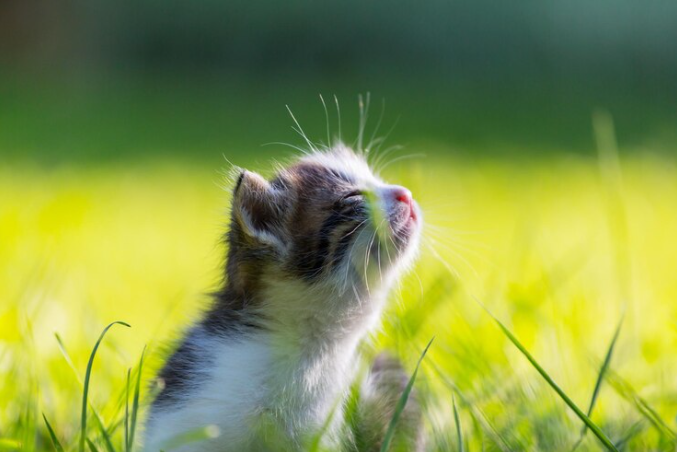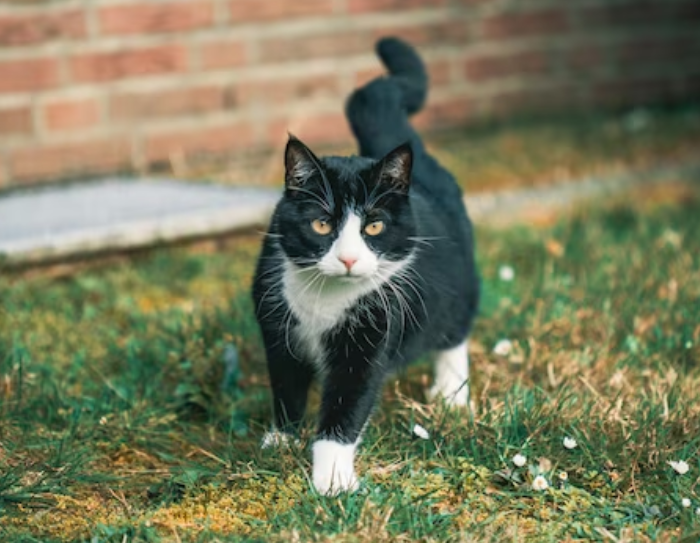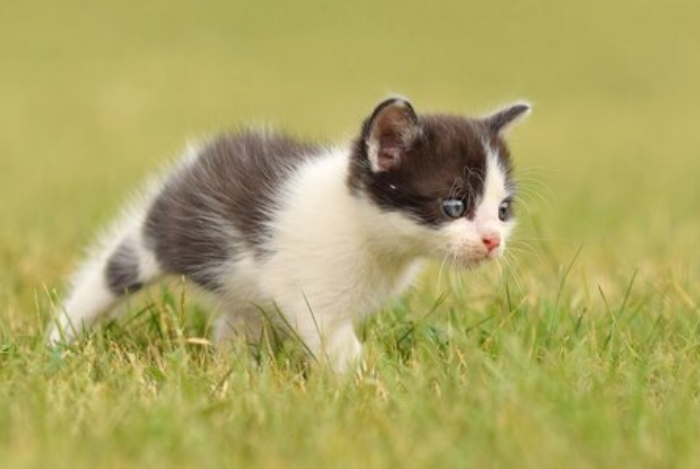2024-01-29
Over the years we have developed a certain image of cats in our mind, associated with individuality, uniqueness, loving personalities, stubbornness sometimes, and even some mysticism.
Many cat owners will agree that their feline friends are able to exhibit a variety of behaviors, even some quite puzzling ones... A type of behavior that cats exhibit and that may appear quite unusual is eating grass. They are carnivores after all! We should not confuse their nutritional needs with the needs of dogs, who have evolved into omnivores.
In today's article, we will explore why cats eat grass, whether it's normal behavior or not, and when we need to manage it or even prevent it.
Cats are carnivores, so eating plants is not typical for them. However, they may occasionally eat grass for various reasons, and when in moderation, this behavior is considered normal. Some of the most common reasons for our feline friends to eat grass are:
Digestive benefits are one of the primary reasons why cats eat grass. The fiber in the grass can stimulate their digestive tract. This may help them regurgitate hairballs, undigested food, or other indigestible objects. Grass can play the role of a natural laxative, aiding in the elimination of irritating materials from the cat's digestive system.
The texture of grass can help clean a cat’s stomach and alleviate the symptoms of gastrointestinal discomfort. Having said that, eating grass can be perceived as a process of self-medication that helps our paw friends deal with digestive issues.
Another reason for cats to eat grass is to enrich their diet with essential nutrients and vitamins. Grass contains some nutrients that are not typically found in a cat's diet, such as folic acid, which is important for various body functions, including the production of red blood cells.
We have explained in some of our articles, that, unlike dogs, cats are evolutionary closer to their ancestors as they have been (partially) domesticated more recently.
In the wild cats are natural hunters, who consume their prey whole, which also includes their stomach contents. Since felines prey on herbivorous animals, this may at least partially explain why cats are interested in eating grass.
Another theory suggests that eating grass may be a tool to add bulk to the diet, especially in a multi-cat household.
In the same way, cats enjoy exploring, chewing, and playing with various objects in their surroundings to stay entertained or have their stress mitigated, they may enjoy eating grass.

For many cats, eating grass is a harmless behavior that can be even beneficial for them.
If your feline friend occasionally chews on grass without experiencing any negative effects, there is usually no reason to stop them. Moreover, it can help improve their digestion and overall well-being.
However, it is important to observe your cat and make sure that eating grass is not accompanied by any negative side effects such as vomiting.
Another essential thing is to keep track of your feline friend’s health, and nutrition, and be able to determine any signs of stress.
Monitor your cat’s body language and behavior for any changes that may have occurred. In case, your kitty is eating normally, remains active, and energetic, and you did not notice any deviations from their standard behavior, then there probably is nothing to worry about.

If you notice that your paw friend’s grass consumption becomes excessive; they suffer some negative effects such as diarrhea, vomiting, and abdominal pain; they have abruptly changed their normal behavior, i.e. have become lethargic, lost appetite, or tried to find places at home to hide, then it is time to consult with a veterinarian.
Your cat may lack nutrients or have a digestive issue that requires a blood test to be done. In most cases, the problem can be treated easily with medication.
In other cases, a stressful factor in the environment may be present, which requires environmental management. This could mean identifying the trigger and removing it or helping your cat get desensitized to it.
Desensitization can be achieved through gradual exposure to the stimuli in the environment. By doing that, you should help your paw friend develop a positive attitude toward it, by pairing its presence with treats or toys. Let your paw family member get accustomed to the trigger step by step by never forgetting to reward them when it is present.
Unfortunately, an underlying health condition may also be a reason for this behavior, which is why consultation with a vet is highly recommended. This is especially important if any of the accompanying symptoms listed above are present.

If you want to redirect your cat’s attention to another activity, engage them in an interesting game including toys to chase, obstacles to overcome, puzzles to solve, or treats to find. This will help them remain fit, keep their mind sharp, and also spend valuable time with you.
Our paw friends always appreciate our attention and the time we spend with them.
Make sure that your feline friend nibbles on pet-safe plants only. Obstruct their access to potentially dangerous and toxic plants such as Catnip, African Violet, Bamboo, Areca Palm, Spider Plant, Rosemary, Ponytail Palm...etc.
In case your cat regularly goes outdoors, and indoor plants do not entirely satisfy them, ensure that the plants outdoors are free from toxins, pesticides, and chemicals. Put a fence in the garden/backyard if necessary to prevent your cat from going to areas with potentially toxic plants.
You can find more information about the plants that are toxic and non-toxic to cats on the American Society for the Prevention of Cruelty to Animals (ASPCA) website.
They also have a brochure including helpful information on household hazards for dogs and cats.
If your paw friend is consistently destroying your indoor plants, and you would like to protect them, you can move them to another area at home that your cat does not have access to, or spray them with bitter-tasting sprays. Make sure they are pet-safe and specifically designed to deter cats and dogs from nibbling on plants.
Cats eating grass is a common and natural behavior, that can be tracked down to their digestive, instinctual, and nutritional needs. While it often benefits cats by aiding digestion and providing essential nutrients, excessive grass consumption can lead to health issues that require monitoring and potential intervention.
As responsible cat owners, it's crucial to understand why our feline friends eat grass and when it's necessary to monitor, or discourage this behavior.
By keeping your paw friend on a healthy and nutritional diet, providing them with alternative safe plants, using pet-safe deterrents, and ensuring they are physically and mentally stimulated, you can find a balance between allowing them to indulge in their natural instincts and keeping them healthy and safe.
Never forget that understanding your feline friend and looking for a well-informed approach will help you provide them with the best possible life conditions and ensure their well-being.